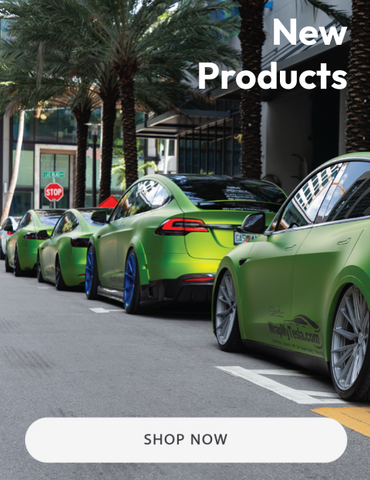International Energy Agency: Electric vehicle battery costs rapidly declining, Tesla cited as leading the pack
As Tesla Motors {NASDAQ: TSLA] overarching mission witnessed a milestone via the International Energy Agency's (IEA) report we wrote about yesterday, it turns out there's more great news. Expanding on this further, according to the IEA, "The Global EV Outlook 2016* includes an analysis of the growth and potential of the electric vehicle (EV) market... [which] also highlights rapid cost declines and performance improvements in the past decade (since 2008, estimates of battery costs were cut by a factor four and battery energy density had a fivefold increase). Technology learning and economies of scale hold the promise to continue reducing progressively technology costs in the forthcoming years."
Before we get into the IEA's findings relative to battery technology, let's review the remarkable numbers related to electric vehicle growth. The Global EV Outlook 2016 study noted, "The year 2015 saw the global threshold of 1 million electric cars on the road exceeded, closing at 1.26 million [100 times more than in 2010]. This is a symbolic achievement highlighting significant efforts deployed jointly by governments and industry over the past ten years. In 2014, only about half of today’s electric car stock existed. In 2005, electric cars were still measured in hundreds."
Furthermore, the study noted, "New registrations of electric cars increased by 70% between 2014 and 2015, with over 550,000 vehicles being sold worldwide in 2015. The market shares of electric cars rose above 1% in seven countries: Norway, the Netherlands, Sweden, Denmark, France, China and the United Kingdom. Market shares reached 23% in Norway and nearly 10% in the Netherlands in 2015. China emerged as the main electric vehicle market: its booming electric car sales were larger in 2015 than in the United States."
Also electric vehicle charging infrastructure saw significant growth: "Indeed, not only did electric car sales surge in 2015, but so did infrastructure for EVs, with total electric vehicle supply equipment reaching 1.45 million units, against 820,000 in 2014 and roughly 20,000 in 2010. The number of publicly accessible chargers grew 71% last year, including 63% more fast chargers."
Pointing further to a bright future for electric vehicles (and Tesla), the study discussed developments in battery cost and performance: "Technology learning, R&D and mass production led to rapid cost declines and performance improvements in the past decade and hold the promise of continuing to progressively reduce technology costs in the near future. The figure below shows that PHEV battery cost estimates monitored by the US DOE fell from about USD 1,000/kWh in 2008 to USD 268/kWh in 2015, which represents a 73% reduction in seven years (US DOE, 2016)."
Citing Tesla Motors as leader in electric vehicle battery cost declines, the study reports that: "Some original equipment manufacturers announced even more ambitious cost estimates for BEVs: General Motors announced that battery costs for its 2016 Chevrolet Bolt had fallen to USD 145/kWh by October 2015, and that it hopes to reduce costs below the USD 100/kWh mark by 2022 (GM, 2015, EV Obsession, 2015). The electric car manufacturer Tesla aims to break the USD 100/kWh mark by 2020 (HybridCARS, 2015). Improvements in battery cost and energy density have led carmakers to announce EV ranges never heard of to date. As an example, in March 2016 Tesla launched orders for its new Model 3, committing to an electric drive range of nearly 350 km on a single charge by 2017, when the first vehicles are scheduled for delivery to customers (Tesla, 2016)."
Most recently, Tesla CTO JB Straubel hinted at further battery cost reductions and technology innovation at Tesla's Gigafactory. Straubel explained: "much better batteries are possible" as he's seeing both "chemistry innovation and materials science innovation." He continued, "We're seeing performance improvements, not just cost reductions." And Tesla's recent hire of a top battery researcher could also expedite improvements in its electric vehicle battery technology. It's clear the International Energy Agency recognizes Tesla as a leader in this area. And judging by the ~400,000 pre-orders for the Model 3, the car-buying public also believes Tesla to be at the vanguard of a new, exciting electric vehicle movement.
===
*Source, International Energy Agency, Global EV Outlook 2016: Full Report, Summary, Charts




